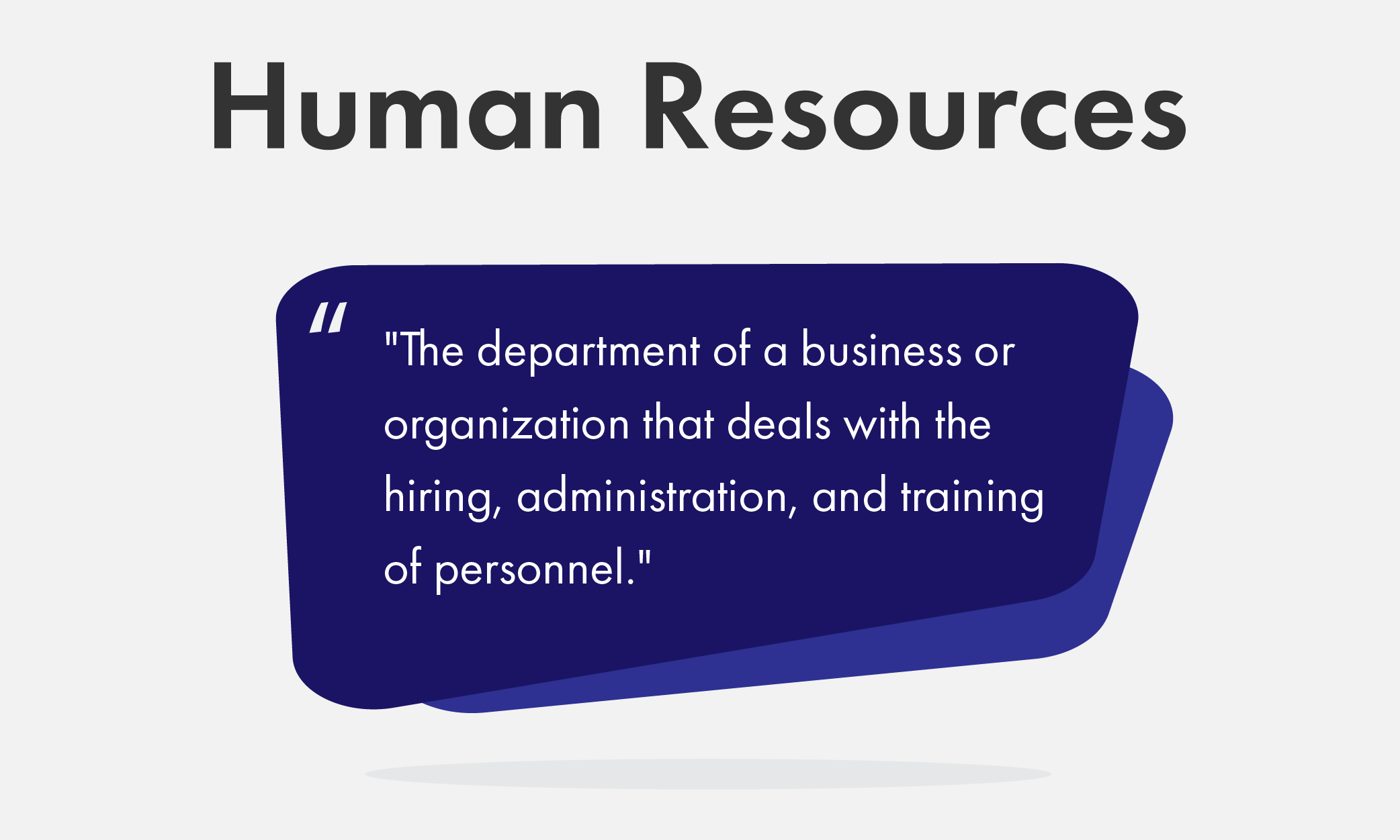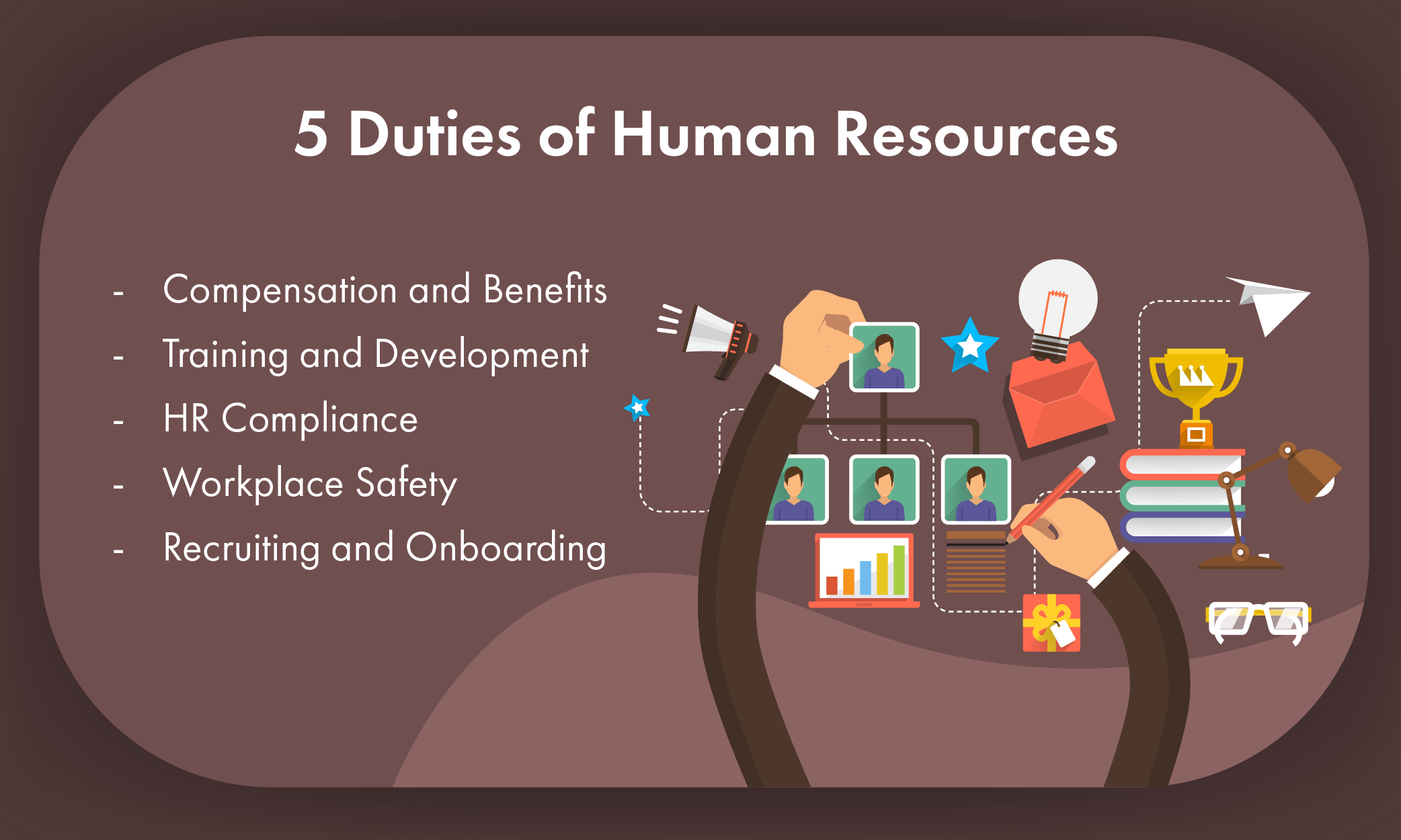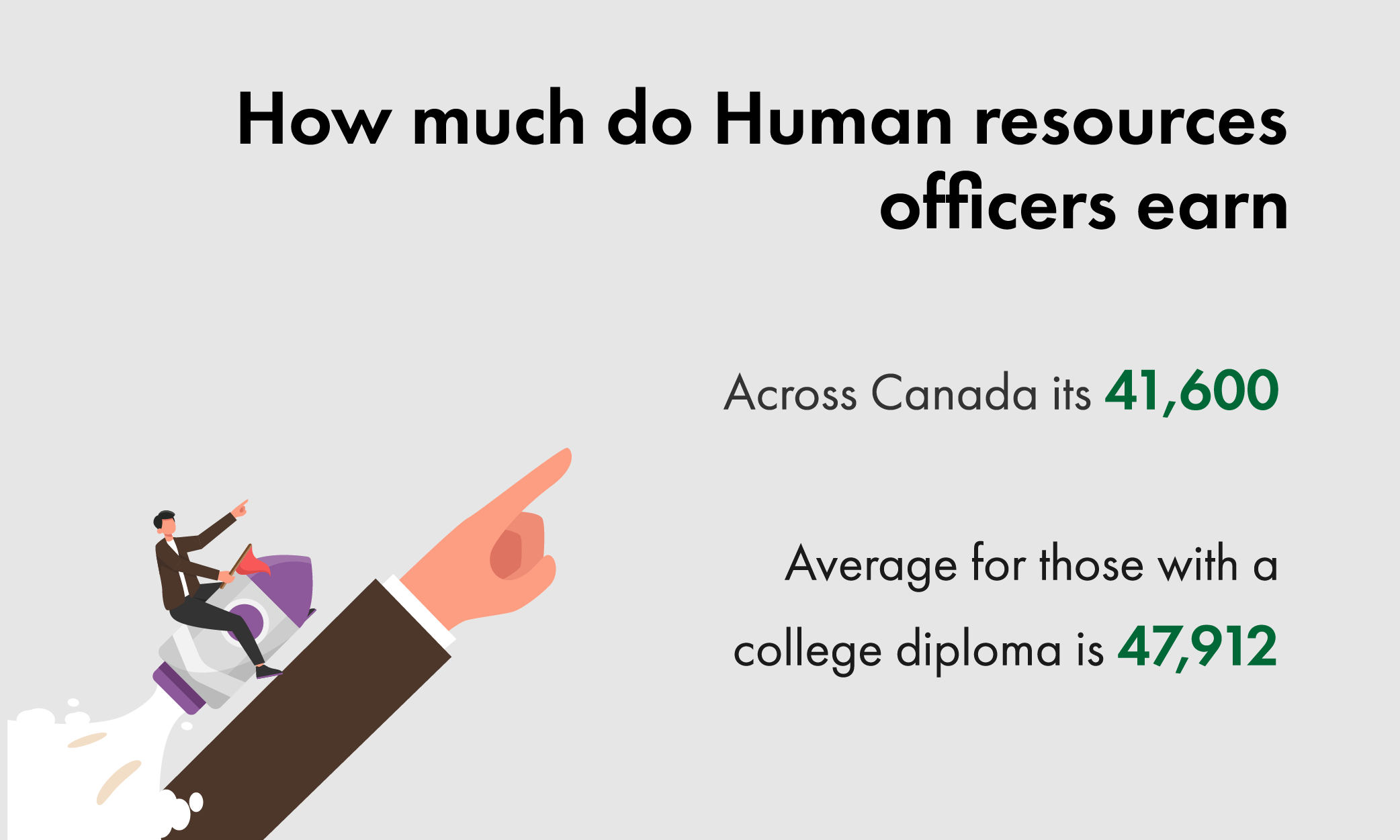The Human Resources department is a fundamental part of every work place. The dedicated work of these professionals help every workplace run smoothly, hire the right candidates, and keep the bridge between employers and employees strong.
There can be a lot to cover when it comes to having a complete understanding of what a Human Resource Administrator does, but here in this “everything you need to know” guide we’ll go through it all!
What is HR?
Let’s start this off by defining what we mean when we say Human Resources. Human Resource professionals are responsible for handing the “people” within an organization or business. This covers everything people related. These professionals usually manage the recruiting, hiring, terminating, and orientation/onboarding of new employees.

Additionally, they also handle any problems or conflicts that can happen between employees. If problems or conflicts occur, the conflict resolution training these professionals have comes into play. Aside from people centred responsibilities, HR admins always maintain detailed employee records for legal purposes.
Duties and Responsibilities of Human Resources Admins
Now that we have an understanding of what HRA professionals are, the next question would be: What do Human Resources Administrators do day-to-day? The day to day responsibilities of a HRA can vary depending on the company they work for, but generally speaking they handle five main areas.

Recruitment, Training, Onboarding
One of the most important components of an HR professional is handling the recruiting, training and onboarding of new employees. Recruiting the right people is not an easy or simple task, recruiters are like the heavy lifters in the company’s workforce. But their job isn’t just limited to interviews, HRAs are responsible for everything involved with the hiring process.
Which includes:
- Posting positions on job boards, at career fairs, on social media (like LinkedIn), and monitoring all the candidates who apply
- Screening, background checking, and selecting potential candidates to bring to the hiring manager
- Acting as a first point of contact and conducting the first initial interview
- Assisting the hiring manager with final selection
After the right candidate is selected, the human resources professional or admin will then put together all necessary documents. This can include employment or conditional contracts, tax documents, and everything else. From job posting to first and last day, the Human Resources department is involved in every aspect.
Compensation and Benefits
Depending on the company you choose to work for, especially in smaller companies, it’s not uncommon for HR to also handle payroll, compensation, and benefits. HR can oversee the calculation of hours, deduction of taxes, payout for expenses,raises, and bonuses. In addition HR also conducts research into evaluating other competitor’s pay structures and creating internal compensation plans for their company.
In terms of benefits, HR are the ones who are responsible for negotiating group health plans and coverage rates with different insurance carriers or coordinating Registered Retirement Savings Plans (RRSPs). After new employees complete their probationary period, HR would be the one to help negotiate their contracts and add them to the company’s benefit and health plan.
HR Compliance
HR is also responsible for ensuring their workplace is in compliance with all appropriate labour regulations and laws. Because legal and regulatory compliance can be a complex and fluctuating area, all HRAs have extensive knowledge and training in this area If a business isn’t complying with labour laws and regulations, it can face penalties in worst case scenarios, prosecution. But that’s not all! HRAs also handle any complaints made by applicants or employees. This can include claims based on discriminatory hiring or employment practices, hazardous working conditions, and more.
On top of making sure that the workplace is safe and in compliance, HRAs also work closely with managers to help create, update, and manage employee policies, handbooks, and manuals.
Workplace Safety
Every employer and company wants to ensure they provide a safe place to work for all their employees. Helping employers and companies achieve this is another duty and responsibility of HR. Here in Canada, all employers are required to follow Occupational Safety and Health Act (OSHA). OSHA requires all employers to provide a safe, working environment and take certain precautions to protect their employees. You might be wondering how HR is tied into this, it’s part of an HRAs role to help support safety training, maintain logs in the event of injuries, and handle any worker’s compensation needs that can happen.
In addition to safety training, logging, and handling worker’s compensation claims, HRAs also ensure that certain regulations are available and compliant in the workplace. This can include:
- Making sure workplace hazards are understood and visibly posted
- Ensuring an appropriate understanding of overall work safety procedures
- Submitting the required three annual reports to the federal government
Training and Development
Training and development is one of the most important aspects of Human Resources. It’s a fair assumption that every company wants to see their employees thrive and succeed, and helping them to achieve this can come in many forms. Whether it’s providing them with regular and ongoing training, providing physical tools (like laptops or work-from-home setups) and softwares, and much more. The HR department is the one responsible for ensuring that all employees have orientation and new hire training as well as additional support as they work.
How much does a HRA make?
One of the most asked questions about Human Resource professionals is: how much does a human resources officer make? It’s important to bear in mind that depending on the company you choose to work for can cause your annual salary to fluctuate. But generally speaking, HRA with a college diploma can make around $47, 912.

Now another factor that you should also keep in mind, is which location or area you’re working. The average salary for a HR officer in Canada can range from $41,600 to $60,008.
What level of education do you need to become a Human Resources Administrator?
When it comes to the kind of education you’ll need. Most employers will not accept anything less than a college diploma. By enrolling in a Human Resources program, you’ll gain all the skills and knowledge you need to be a well-rounded and successful candidate.
But it’s important to make sure you are selective with the HRA course you take, not all courses are created equal. You’ll want to look for a program that will teach you elements of labour regulations, onboarding and development training, compensation and benefits, and more. One key indicator of a good program is having a built-in practicum. Practicums can help you bridge the experience gap many graduates face since it gives you an opportunity to use the skills you’ve learned in class in real life.
How to prep for a HRA Interview
Now that we’ve gone over everything that you might need to know about being an Human Resource Administrator, the next logical step would be to go over how to prep for your interview!
Usually the questions that will be asked at HRA interviews can fall into three main categories:
- General Questions: This mostly pertains to you personally and shows the interviewer why you have chosen this career field, some of your motivations, and other questions that will showcase the kind of person you are.
- Education, Background and Experience Questions: These kinds of questions are more probing on your qualifications, education, background and experience.
- In-Depth Questions: These questions can be very specific to kinds of systems you should be familiar with and are used to assess whether or not you are qualified for this position
Sample Interview Questions for a Human Resources Interview with Answers
Q: Tell me about yourself?
This is always one of the first questions asked in an interview. You’ll want to highlight what makes you an excellent candidate without sounding like you’re being disingenuous or cliche. Be yourself!
Sample answer:
“I am a new graduate, I attend ABM College and took their Human Resources Administration Diploma. I would consider myself a fairly laid back person but also someone who is very detailed. I am notorious for making to-do lists on post it notes.”
Q: What got you interested in working in a Human Resources department?
This question is your chance to highlight why you’ve chosen to pursue a career in Human Resources. Usually when an interviewer asks this question they want to learn more about your intentions and approach to HR.
Sample Answer:
“I’ve always admired the work of Human Resources and understand what an important role they play. People are the most valuable asset a company can have. As a HR professional, I really enjoy and take pride in being able to help people fulfill their potential by hiring the right fits and then helping support them in their work. HR really aligns with my values and personality. I love being in a dynamic environment where the day to day can change but most of all I really value the impact and engagement we do every single day.”
Q: What is your understanding of the role of a human resources department?
This is an important question, especially for entry level positions. Often this is asked to ensure that you understand the scope of what HR does. This can also be used in more senior level questions to gauge what your personal approach and level of HR knowledge is.
Sample Answer:
“From my education at ABM College, I know that HR departments are responsible for various responsibilities. This can include employee selection, compensation and benefits, recruitment, onboarding and training, legal elements like employee contracts, safety compliance, termination procedures, and much more. The HR department also handles any complaints or concerns between management and employees.”
Q: Describe how you would approach conflict resolution.
Since HR typically handles the majority of employee complaints, report filing, and documenting of serious conflicts or infractions, the interview will need to assess how you handle conflicts while also upholding confidentiality in the process. This is a great opportunity to use past examples of how you have handled conflicts and your documenting process as well.
Sample Answer:
“During my practicum, I had the opportunity to use some of my conflict resolution skills from my course. I had responded to an employee complaint that their supervisor was being unfair to them. I set up a meeting with the employee to document their complaint. After taking my report, I met with the supervisor in question to document their response. After I had both reports, I discussed both reports and the whole situation with my manager. From there, we decided to meet with both parties to clarify the situation. It turned out that the employee was having some personal issues with their workload and feeling overwhelmed. The supervisor helped mend the situation by more evenly distributing work amongst everyone. I always think it’s best to communicate clearly and discuss the situation before taking additional actions.”
Q: How do you stay up to date on current laws and regulations?
HR departments heavily rely on complying with labour and employment laws so staying updated and current is absolutely essential. If you complete annual HR training, attend conferences, or are subscribed to certain professional associations this is a good time to mention them.
Sample Answers:
“One thing I learned from my practicum is the importance of staying on top of. I like to stay subscribed to a few feeds that post updates on the regular. I also ensure that I attend annual professional development training and conferences too.”
Q: What kind of information should be included in an employee handbook?
Human Resource teams are responsible for creating, maintaining, and updating employee handbooks. The interviewer will want to know how you provide important information, policies, and procedures within a central document. In your answer, give examples of how you have collaborated and communicated with various teams to create this handbooks or similar documents.
Sample Answer:
“I helped develop and maintain my company’s handbook. The most important information should always be easily accessible and understandable for all employees. I think items like company policies and regulations, employee rights, employer and employee expectations, safety hazards, etc. When we were updating this handbook, we worked with 3 other departments so it definitely was a big task.”
Q: Describe your experience working with human resource management systems (HRMS).
HR depends on human resources management systems to manage and access company information. If an interviewer asks you about this, the primary goal is to assess your technical abilities with using software applications on the job. It’s best to describe the programs you have used and your proficiency level.
Sample Answer:
“I learned how to use Oracle HRMS in my practicum. I really like the interface of Oracle. I know how to easily access employee performance, productivity tracking, and payroll information in a single program. Even though my interaction with it was brief I would say I am proficient.”
Q:Have you ever conducted employee training?
A major component of HR is onboarding and training new employees. When you answer this question make sure give examples so the interviewer can get an understanding of how you approach new hire training. If you haven’t done this just yet, focus on how you would approach this task.
Sample Answer:
“I haven’t necessarily had experience leading an onboard or new hire training yet but when given the opportunity I would go through the company policies, procedures, and expectations. I would make sure to have pauses and invite them to ask me any questions. I would also make sure to have some handouts with common questions for them to take with things like who their direct manager is, where to find common areas like the washroom, kitchen, etc.”
Q:How do you ensure employee databases are accurate and up to date?
Since employee information can change from time to time, it is the responsibility of HR to not only update this information but also make sure that the staff know to communicate any changes to them. In your answer, provide examples of how you communicate changes with staff and how you manage a large employee database.
Sample Answer:
“ I would keep my databases accurate by sending out monthing emails to staff checking in for any changes to their information. When I would send these emails, I would make sure to include links so that employees can click to let me know or to let me know their information is current.”
Final Thoughts
Well there you have it! Your full guide to becoming a human resources administrator! So where do you go from here, like the beginning to many other career paths the first step is: getting your college diploma! Check out ABM College’s Human Resources Administration Online Diploma for more information!
About The Author

Private Career College
ABM College is a leader in career-focused education, committed to empowering students with industry-relevant skills. With expert instructors and practical training, ABM College delivers high-quality programs in health, business, technology, and more, ensuring graduates are prepared to meet workforce demands. Known for its supportive learning environment and a focus on real-world application, ABM College is a trusted educational partner helping students achieve professional success across Canada.
